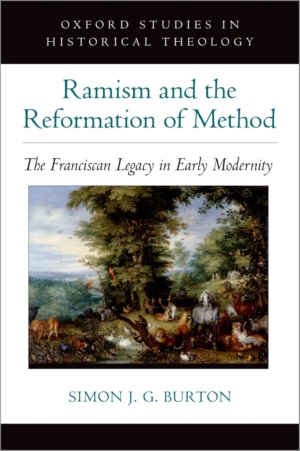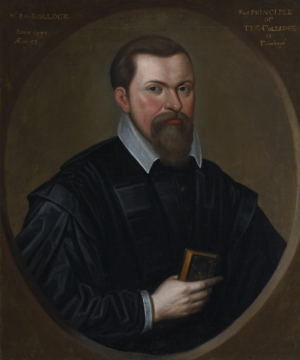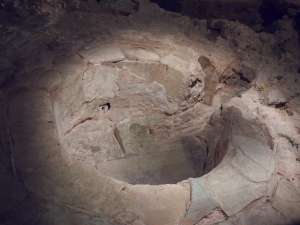Philosophy and the way that we frame issues has always played an important role in expressing the truth. We have an “apparatus” to our thought. We use certain conventions to be able to articulate what we mean even in theology. Whether we . . . Continue reading →
Academic Stuff
New Translation In Print: Rollock On Romans
Robert Rollock (1555–98) did not live very long but he was a hard-working Scotsman who left his mark on Reformed theology and especially in biblical commentary and the development of Reformed covenant theology. In his introduction to Rollock’s commentary on Ephesians, Casey . . . Continue reading →
Can Baptists Be Catholic? (Part 3)
My Baptist friends give two replies to the claim that they are not truly catholic. First, they appeal to their intent to be catholic. For example, in the introduction to the Second London Confession (1689) they say: “This we did the more abundantly to manifest our consent with both in all the fundamental articles of the Christian religion, as also with many others whose orthodox Confessions have been published to the world on the behalf of the Protestant in diverse nations and cities.” Continue reading →
Can Baptists Be Catholic? (Part 2)
When the ancient church began to use the adjective catholic (universal) to describe her theology, piety, and practice, and to distinguish herself from the Gnostic, Marcionite, and Montanist cults of the second century, the best evidence is that they did not read . . . Continue reading →
Owen Versus Tombes On Infant Baptism
The passages are these:— He was thirty years old when he came up to be baptized. Then, when he had the mature age of a teacher, he came to Jerusalem, so that all would reasonably accept him as a teacher. For he . . . Continue reading →
Can Baptists Be Catholic? (Part 1)
Whether Baptists can be catholic is a serious question that requires a serious answer. Before we proceed, however, we must define our terms. What is catholicity? Our English word catholic is really a Greek word, katholikos (καθολικός), borrowed by English. What does . . . Continue reading →
Ursinus’ Arguments That “This Is My Body” Is A Promise Of Grace Translated With An Introduction
The Heidelberg Reformation Association presents the first ever translation of a brief work on the Lord’s Supper by Zacharias Ursinus and translated by Dr Lee Irons. Continue reading →
Looking For Peter’s Successor
In the last month, we have witnessed the death of one pope and the election of another, and as typically happened, we saw reporters speaking in solemn tones about the unbroken line of succession from Peter to Leo XIV. Also, recent months . . . Continue reading →
Sola Scriptura Fell Out Of The Sky? A Response To Trent Horn
The popular Roman Catholic apologist Trent Horn recently published a video criticizing the Protestant principle of sola scriptura on historical grounds, and arguing that sola scriptura was a novel idea invented by the Protestant Reformers with no basis in the writings of . . . Continue reading →
New Insight Into Olevianus And Ursinus On The Imputation Of Active Obedience
The publication of this new research, completed only in the last month, may surprise some readers, disappoint others, and delight still others but it is important research that changes what we know about the origins and development of the controversy over the . . . Continue reading →
The New Inquisition: Illiberalism In The Modern Academy
Most college students are taught that, in the pre-Enlightenment world, religious zealots persecuted enlightened astronomers for daring to challenge deeply held but ignorant religious beliefs on the basis of early modern science. Whether that story is true as told is immaterial. That . . . Continue reading →
Why Christians Call Mary Theotokos (Part 2)
The great Cappadocian theologian Gregory of Nazianzus (c. 329–c. 90) had addressed the same concerns expressed by the Nestorians decades before proclaiming: If anyone does not believe that holy Mary is Theotokos, he is severed from the Godhead. If any one should . . . Continue reading →
Why Christians Call Mary Theotokos (Part 1)
We, then, following the holy Fathers, all with one consent, teach men to confess one and the same Son, our Lord Jesus Christ, the same perfect in Deity and also perfect in humanity; truly God and truly man, of a rational soul . . . Continue reading →
Why Does The Council Of Chalcedon Matter?
Dr. R. Scott Clark explains why the Council of Chalcedon matters for our theology today. Continue reading →
Confessional Protestantism Is Not Populist
I recently watched a panel discussion hosted by the Intercollegiate Studies Institute (ISI) which discussed the book, The Democratization of American Christianity, along with its author, historian Nathan O. Hatch.1 The members of the panel included Rusty Reno from First Things Magazine, . . . Continue reading →
The Black Rubric And The Creator-Creature Distinction
The “Black Rubric” was so-called because it was set in black print in the 1661–1662 edition of the Book of Common Prayer. It was first inserted into the Second Edwardian Prayer Book in 1552. It was intended to explain that when communicants . . . Continue reading →
When Old Testament Scholars Do Historical Theology
It comes out about as accurate as Historical Theologians doing serious Old Testament work. I say this because I recently asked whence folk (Federal Visionists among them) get the idea that Martin Bucer’s soteriology marked a substantial break from Martin Luther’s. I . . . Continue reading →
Things Not To Say About Jesus At Christmas (Or Any Other Time)—Part 2
A Third Error Previously I wrote that there are two classes of Christological errors. That is not strictly true. There are three: those that deny the humanity, those that deny the deity, and those that deny the union of the two natures . . . Continue reading →
Things Not To Say About Jesus At Christmas (Or Any Other Time)—Part 1
Like the celebrants of Festivus, Reformed folk have historically had a lot of problems with both the ecclesiastical calendar, including advent, and Christmas. It is not because we do not heartily affirm the incarnation of our Lord—we do!—but because neither the Scriptures . . . Continue reading →
And Now For The Rest Of The Story
Christianity Today Online has published a piece touting the virtues of online seminary education.1 I expected there to be, somewhere in the story, someone to present the other side opposing online seminary education, but I did not see it. Perhaps I missed it? . . . Continue reading →














